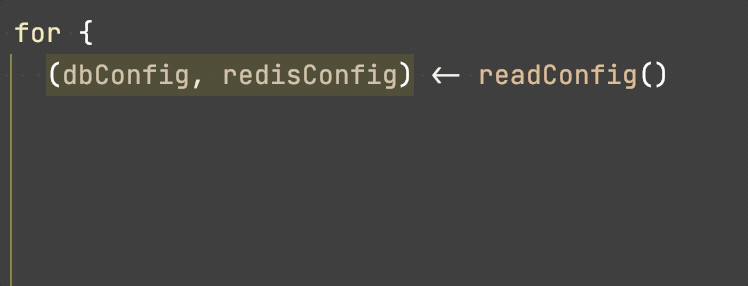Scala 3 is upon us, and the compiler team has been busy trying to make the migration process as smooth as possible. Scala 3 introduces new syntax for old things and deprecates some of Scala 2’s infamous warts, many of which have been fixed (or made obsolete) by the new compiler. While some of the Scala 2 syntax still supported in Scala 3.0, it will be removed in Scala 3.1, so it’s best to migrate as early as possible.
To make the process easier for Scala 2 users, the Scala compiler team have been backporting some of the new features to the Scala 2.x compiler, enabling them with the -Xsource:3 compiler flag. In addition, users of the latest IntelliJ IDEA 2021.2 (in Early Access, at the time of writing) will get automatic refactoring suggestions, converting the old syntax to the new one.

Here are the top features, enabled in Scala 2 by turning on the -Xsource:3 compiler flag:
scalacOptions ++= Seq( |
After enabling this option, you might get lots of compiler warnings (or errors, depending on your configuration), explaining the deprecated features and suggesting ways to fix them.
Note: although some Scala 3 features have been ported to the earlier versions of the Scala 2 compiler, the new syntax changes were added in the recently-released (at the time of writing) 2.13.6. Please upgrade your Scala versions to get the latest available features.
Here are some of my favorites:
case classes with a private constructor
If you’re following the Smart Constructor pattern in Scala 2, you’ll discover that making the constructor of a case class private is not enough - the companion apply, and the copy methods of the case class will still be public. There are ways to work around it - but they are no longer needed with the -Xsource:3 flag! Enabling it makes case classes behave correctly, like they do in Scala 3, disabling the companion apply and copy on any case class with a private constructor.
Tuple destructuring in for-comprehensions
Update: Looks like I got this one wrong. Guillaume Martres of the Scala 3 compiler team comments about the purpose of this change:
Adding the
casekeyword in for-comprehensions will only be needed in Scala 3 for non-exhaustive matches (see https://dotty.epfl.ch/docs/reference/changed-features/pattern-bindings.html#pattern-bindings-in-for-expressions), you don’t need it to avoid having to usewithFilter(in fact, not usingcaseguarantees thatwithFilterwill not be used in Scala 3). And in Scala 2 under-Xsource:3,casedoes nothing and is only supported to ease cross-compilation: https://github.com/scala/scala/pull/9558
So it seems the case keyword support was added to make cross-compilation between Scala 2 and Scala 3 easier, it does not change the behavior of pattern matching. In fact, the suggested refactoring in the image above is actually not needed, and I reported it as a bug to the IntelliJ tracker.
Miscellaneous syntax changes
Some other syntactic changes/improvements were backported in the latest Scala 2 versions:
* instead of _ for wildcard imports
Scala 3 imports now use the * character for imports (and the use of _ for imports will be removed in Scala 3.1), allowing you to write:
import scala.util.* |
Note: Unfortunately, this change does not work for wildcards inside braces due to an issue that was already fixed, but did not make it to the release as part of 2.13.6. It will be fixed in the next compiler release (2.13.7), when available. The following syntax:
import scala.util.{Try, *} |
does not compile with Scala 2.13.6, failing with the error: object * is not a member of package util.
as instead of => in import aliases
Additional change to how imports are handled is the use of the keyword as instead of => when aliasing imported types.
Instead of:
import java.util.{List => JList} |
Use:
import java.util.List as JList // braces not required for a single import alias |
? instead of _ for wildcard types
A less-used feature, but a notable change is the use of ? in the following syntax:
Instead of:
val x: _ <: Any = ??? |
Use:
val x: ? <: Any = ??? |
& instead of with in compound type declarations:
Instead of:
val x: A with B = new A with B {} |
we can now write:
val x: A & B = new A with B {} |
vararg splice syntax (* instead of :_* and @_*)
One more simplification to the various ways of passing values into functions expecting variable arguments:
Instead of:
foo(s: _*) |
Use:
foo(s*) |
And instead of:
val Seq(a @_*) = ??? |
Use:
val Seq(a*) = ??? // RIP, 🐌 operator |
More changes are being backported to Scala 2, I suggest keeping an eye on the release notes, and upgrading to the latest versions as soon as possible!